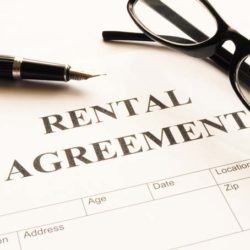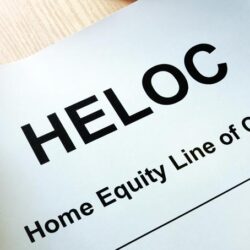One of our most frequent reader questions is how we picked our real estate investments, and how we are investing in real estate in today’s market.
To start answering this question, I will first focus on what we are NOT doing – i.e., real estate investment options we considered but ruled out.
We are not financial advisers, so this isn’t about ruling out these investments for others. This post is simply about how we made decisions for ourselves, in case our thought process can help clarify how you might work through the various options available for yourself.
Here are the decision criteria we use as we evaluate different types of investments:
- Riskiness of the investment
- Passion for the investment area
- Special expertise in the investment area
- Work required to secure and manage the investment
Risk management is primary investment criteria

Having already achieved a base level of FIRE, we are less inclined to take unnecessary risks.
Our real estate portfolio is 80% residential rentals because we see residential rentals as low-risk. Banks arguably agree since they lend on residential real estate at 5:1 leverage. Compare this to the 2:1 leverage for margin loans to buy paper assets (or just try to get loan for your small business!). Sure, you could lose money on a residential real estate purchase if you over-borrow or buy a money pit. But you can pretty easily mitigate these risks – e.g., you put enough money down to decrease the leverage risk, you get a thorough inspection before you buy.
In our case, we bought residential rentals where we would still have enough money left over to cover the mortgage, tax, insurance and utilities even in cases of prolonged vacancy. We added additional rentals only when the initial rentals were self-sustaining and cash flowing. In other words, we built up our portfolio a little bit at a time with bite-sized costs we could afford.
No commercial real estate
Commercial real estate is of interest to us, but the cost of entry didn’t fit what we could afford before or are willing to risk now. You can borrow less so the down payment is much higher. The due diligence costs are much higher as the legal and inspection costs are expensive, and that is even before you get a property under contract.
Unlike residential real estate where we can spread our risks over multiple properties, we can’t easily buy multiple commercial properties. We would rather focus our energy on preserving what we have than taking on more risk.
No syndications
Syndications would be one way to participate in bigger deals, like commercial real estate, and we are still looking into this option. However, the risk in syndications is that the investment doesn’t pan out, or the sponsor doesn’t manage the project profitably. Vetting the sponsor is the primary way of managing risk in a syndication, and so far, we haven’t found sponsors that we trust. This is a two-way street by the way, as sponsors with an impressive track record typically already have investors lined up and/or have investors willing to invest much more in each deal than we are.
While we are looking at different syndication opportunities, we did agree to lend to a developer. This is a private loan, not a syndication, as we are the only lender on the project and have title to the collateral in case of a default. We’re also looking at doing other loans, but similar to finding quality syndication projects and sponsors, it is not easy to find quality borrowers. We won’t skimp on the due diligence because risk management is the key criteria in deciding to do our next deals.
Passion for what we do is primary personal value

Due diligence of real estate investment opportunities is work. In addition to looking at risk, we also look at enjoyment for the work.
In the case of residential rentals, we look at hundreds of listings, scout neighborhoods, and network with people (e.g., realtors, contractors, investors, people living in the area) – all specific to one area and one investment.
We do the work to mitigate our risk, and we are willing to do this work because in the case of residential real estate, we happen to enjoy it. This is why we buy in places that we would travel to anyway. Trips to scout new and check existing properties double as leisure travel.
No tax liens
A former colleague of mine felt she got a great real estate deal via a tax lien. Tax lien investing is where you pay the overdue taxes on a property, so the city or town gets its money, and the delinquent property owner pays you a nice interest (can be double-digit) to make good on their account, so you get something. If the owner doesn’t make good on the account, you get that property.
The tax lien could work out for you whether or not the owner pays up – i.e., you either get interest or you get a property at a deeply discounted price. However, the due diligence here is on the value of that property. If tax payments have been delinquent, the property has probably not been maintained. You could be walking into an extensive renovation project. In addition, property tax laws vary by county so you would need to do a deep dive into the legalese of each area, in order to figure out what the best deals are with tax liens. I’m getting bored just writing this.
Special expertise or a competitive advantage is critical

While I consider myself a numbers person, I’m no legal expert and certainly no tax expert. So in addition to having zero interest in researching tax lien opportunities, I have no special expertise that suggests I would find a better deal than other investors who might have accounting or law backgrounds. In fact, my lack of special expertise could leave me open to making mistakes – a risk management concern. A competitive advantage in the work we choose is important because presumably we’ll get above-average results for less risk in something for which we have above-average abilities or special knowledge.
Of course, one can always learn about a field, which is why I prioritize passion for the work over just having special expertise. We know a lot more now about residential real estate than we started, and we were willing to put in the time because it feels like work and play. That said, the work part still reasonably fits with how much time and effort we’re willing to expend.
No fix and flip
We do not have architecture, engineering, construction or design backgrounds, so fix and flips are out for us. You can fix and flip with residential real estate, so some of the work is similar to what we’re already doing, but it’s much more active and the expertise needed is more involved.
Sure, you could learn it, and when we were in the FIRE accumulation phase, we considered it. However, from a competitive advantage standpoint, we were much better off focusing on our day jobs where we already had a competitive advantage.
The interest in fix and flips, as much as I love my HGTV shows, is just not high enough to overcome the competitive disadvantage.
Securing and managing investments requires work
Our current life stage is more play than work, and minimizing the work required is our final deciding factor
As mentioned, we passed on fix and flips because we have no special expertise or advantage, but they also require more active work that we want to take on right now. We are empty-nesters finally and have a long list of places we want to see.
No residential assisted living

Another investment we seriously considered but ultimately ruled out is residential assisted living. The market potential is enormous with 10,000 Boomers turning age 65 each day. Elder care is an important and expensive problem to be solved, and this feels like a space where you can do well (financially) and do good (in the world).
However, talk about an active investment! Of everything on our short list, running an assisted living facility takes the cake –operations, people management, real estate issues, legal issues, medical issues, insurance issues. I’m exhausted just writing about this.
That said, there are more limited ways you can participate. If you don’t want to oversee an assisted living facility outright, you could purchase one to rent out. On an even more limited commitment, you could fund the purchase or the ongoing business expenses. In fact, the personal loan to the developer that we mentioned is for an assisted living facility, so we are tangentially involved. This developer does both residential and assisted living properties, however, so it’s just this current loan that happens to be assisted living-related.
We prepare to invest, but are in no rush to do so
I follow general market and real estate-specific news. I look at listings and have alerts set up. We attend real estate conferences and take networking meetings. We keep a portion of our real estate portfolio in cash, for reserves of course, but also for investing. I even have a private lender lined up in case we need more cash.
If an opportunity arises, we want to be in a position to take advantage of it quickly. That said, we don’t mind waiting. With a looming recession, sitting on cash is not a bad move. Sure, cash arguably loses money to inflation, but if stocks go into bear market territory (down 20% or more), we’ll lose less than that holding cash!
======
Of course, everything we do is about our specific circumstances — our risk appetite, our values and our preferences. Another couple – even if they’re also 40-something, with kids, in New York – may come up with a completely different investment portfolio and ongoing criteria.
How do you decide on your investments? How have you adjusted over time?


 We are Scott and Caroline, 50-somethings who spent the first 20+ years of our adult lives in New York City, working traditional careers and raising 2 kids. We left full-time work in our mid-40’s for location-independent, part-time consulting projects and real estate investing, in order to create a more flexible and travel-centric lifestyle.
We are Scott and Caroline, 50-somethings who spent the first 20+ years of our adult lives in New York City, working traditional careers and raising 2 kids. We left full-time work in our mid-40’s for location-independent, part-time consulting projects and real estate investing, in order to create a more flexible and travel-centric lifestyle.  Financial independence and early retirement is not something we originally focused on, but over time realized it was possible. Our free report,
Financial independence and early retirement is not something we originally focused on, but over time realized it was possible. Our free report, 







